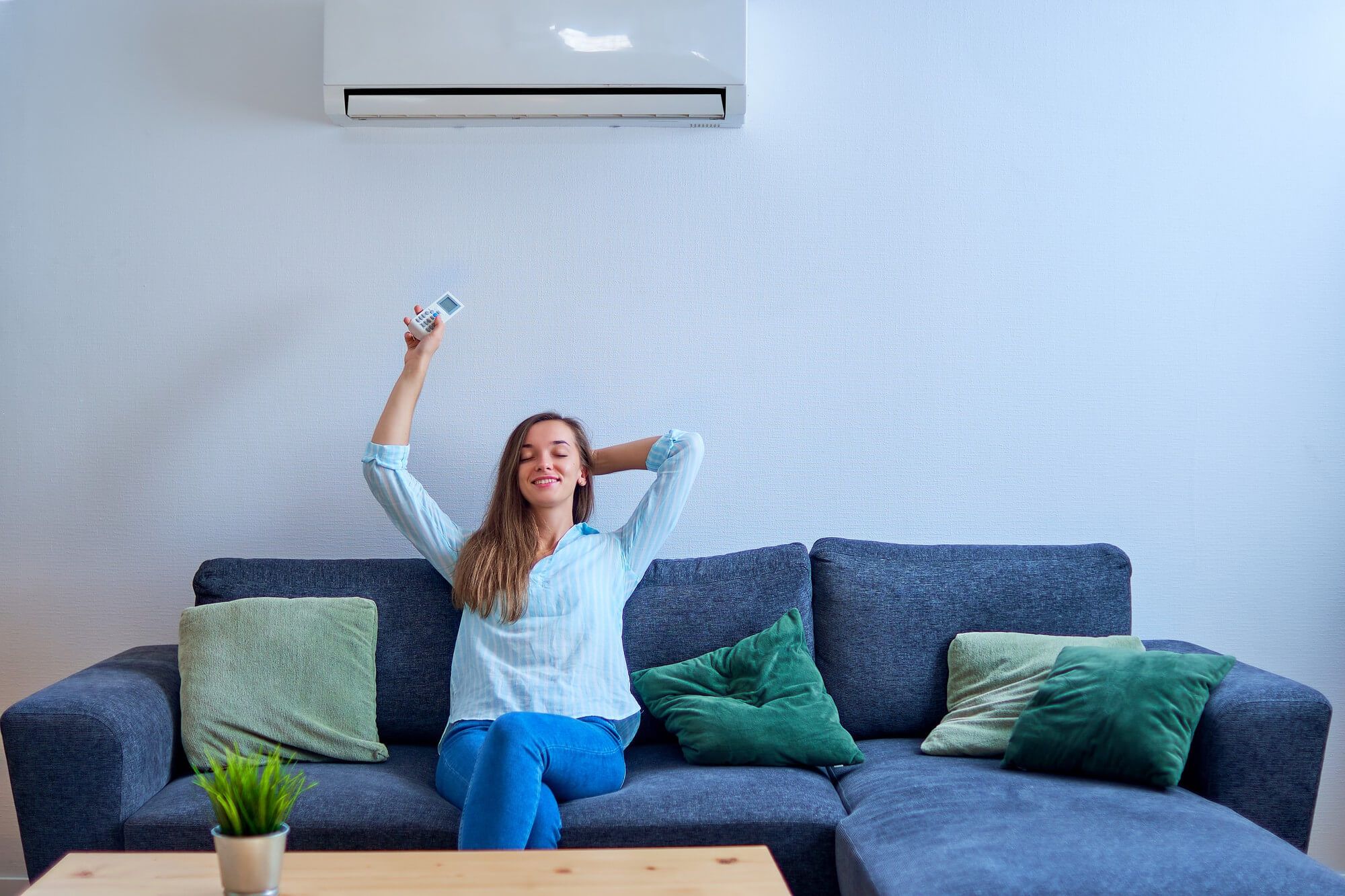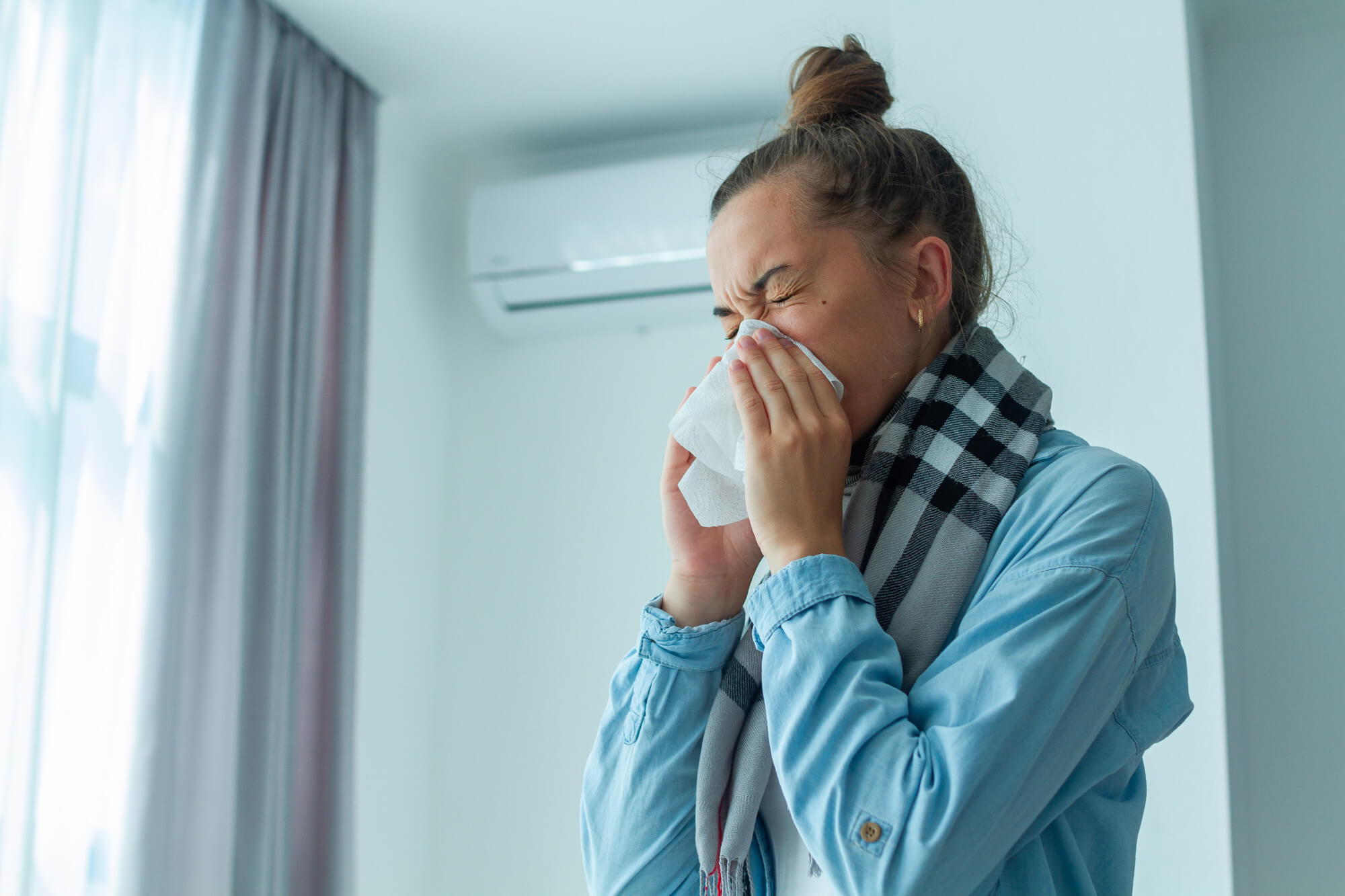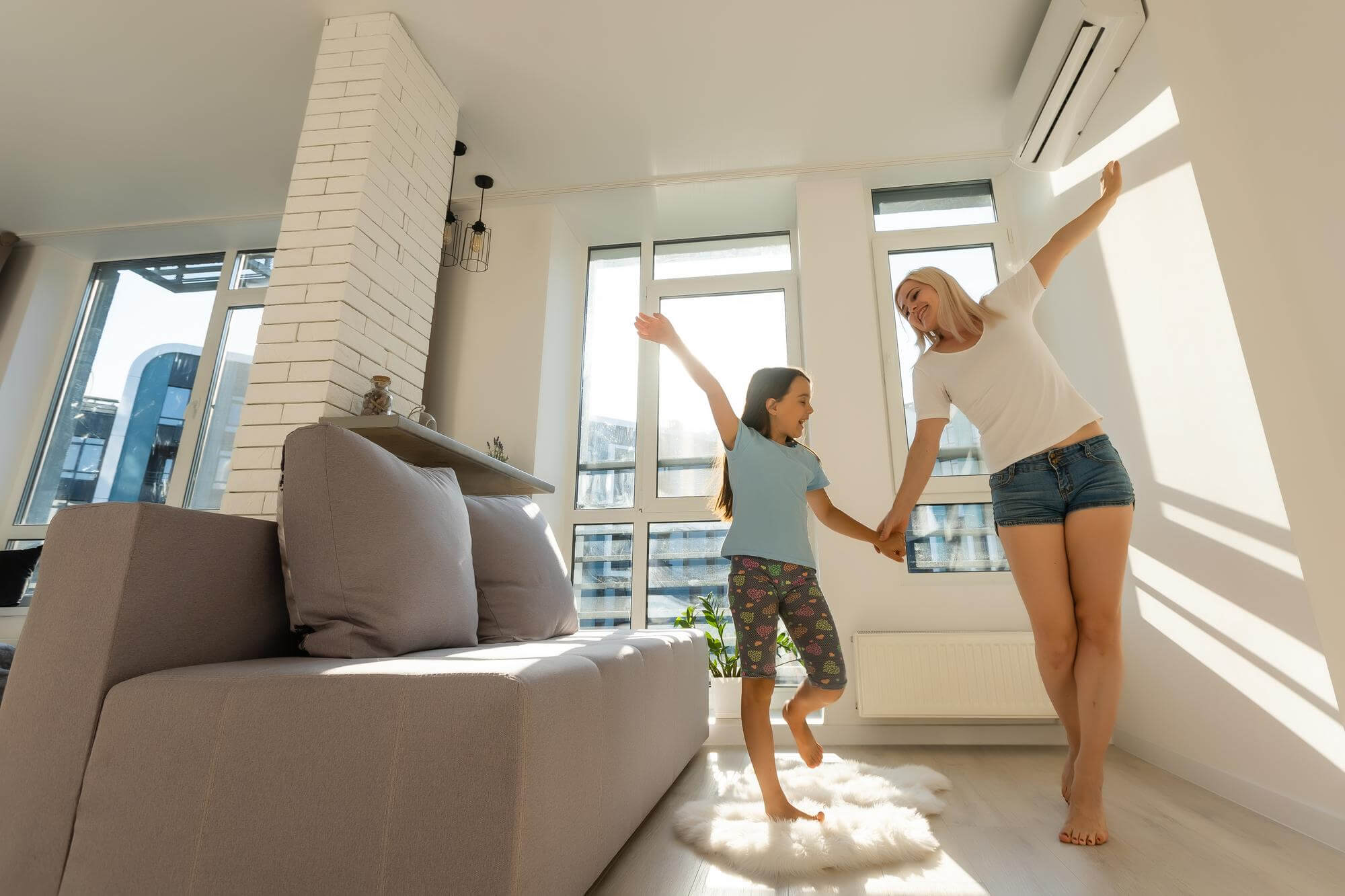Air conditioner allergy: causes and treatments


Eva Zakharova
Air conditioning allergies are a common problem that many people face. In this article, we will look at the causes of air conditioner allergies, the symptoms and treatments, and how to choose an air conditioner for people with allergies.
What is air conditioning and how does it work
An air conditioner is a device designed to cool, heat, humidify and clean the air in a room. The principle of air conditioning is based on the use of freon - a refrigerant, which evaporates and condenses during the operation of the device, providing a comfortable environment in the room.
There are different types of air conditioners: wall-mounted, floor-mounted, window-mounted, mobile, cassette and others. They can be divided into two main categories: split-systems (consisting of indoor and outdoor units) and single-unit devices.
Why air conditioner can cause allergy
Allergies to air conditioning can occur for a number of reasons. Firstly, freon can cause allergies in some people, which manifests as skin rashes and itching. Second, the air conditioner can be a breeding ground for dust mites, mold and other allergens if it is not maintained and cleaned regularly.
What are the symptoms of air conditioning allergies

Symptoms of an air conditioning allergy may include:
- Itching and redness of the skin;
- Rashes and rashes;
- Nasal congestion and runny nose;
- Sneezing;
- Lacrimation and itchy eyes;
- Shortness of breath and coughing.
How to distinguish an allergic reaction from other diseases
In order to distinguish air conditioning allergies from other conditions, you need to pay attention to the nature of the symptoms and the circumstances in which they occur. If the symptoms increase when using the air conditioner and improve when turning it off, it may indicate an air conditioner allergy.
Diagnosis of an air conditioning allergy
To accurately diagnose an air conditioning allergy, you must be examined by an allergist.
Skin testing and blood tests are standard methods of diagnosing allergies. During allergen skin testing, the doctor applies various allergens to the patient's skin to determine which ones are causing the allergic reaction. A blood test determines the level of immunoglobulin E (IgE) in the blood, which is a marker of allergy.
Air conditioning allergy treatment

Treatment for air conditioning allergies may include the use of the following medications:
Antihistamines (tablets, syrups) such as cetirizine, loratadine, fexofenadine;
Hormonal ointments (hydrocortisone, flucinar) to relieve itching and skin rash;
Nasal decongestant drops (oxymetazoline, xylometazoline) to relieve nasal congestion;
Moisturizing and anti-inflammatory eye drops (sodium cromoglycate, azelastine) to relieve itching and lacrimation.
What precautions can help avoid allergies to air conditioning air conditioning
To prevent air conditioner allergies, the following precautions should be followed:
- Clean and maintain the air conditioner regularly to prevent the accumulation of dust, mold and other allergens.
- Install antibacterial and anti-fungal filters to help reduce allergens in the air.
- Use air conditioners with an air ionization feature that improves air quality and reduces allergens.
- Ensure regular ventilation of the room to maintain an optimal microclimate and prevent the accumulation of allergens.
How to choose an air conditioner for people with allergies

For people with allergy it is recommended to choose air conditioners equipped with high quality air cleaning filters, ionization function and possibility of automatic operation. Such air conditioners provide comfortable conditions and minimal allergens in the air.
When choosing an air conditioner to prevent allergies, you should pay attention to the following features:
- Availability of coarse and fine air purification filters (HEPA filter);
- The function of air ionization;
- Antibacterial and antifungal filters;
- Possibility of automatic operation mode and maintaining an optimal microclimate;
- Timer to control the time of operation of the device.
Air conditioning allergies can cause unpleasant symptoms and complications. However, by taking precautions and choosing the right equipment, you can minimize the risk of an allergic reaction. Regular maintenance and cleaning of the air conditioner, the use of quality filters and air ionization features will help create a comfortable indoor environment and reduce allergens in the air. If symptoms of an air conditioner allergy occur, you should immediately contact an allergist for diagnosis and adequate treatment.
Related Materials
New materials
Popular Articles
We recommend reading
Contact us in the Contact Us section to ask questions, offer ideas, or for more information about our allergy resource.
Our articles are your trusted source of allergy knowledge. Learn how to make life with allergic reactions easier on our specialized portal.
©
Lechenie-Allergii.com. All rights reserved.
© Lechenie-Allergii.com. All rights reserved.
The information on this site is for informational purposes only and is not a substitute for professional medical advice. We recommend consulting with qualified medical professionals for accurate information and advice.
 English
English  Українська
Українська  Русский
Русский 









